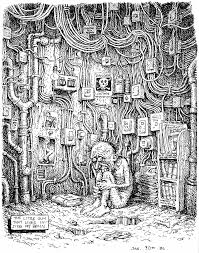记忆方法
1. 谐音“垮了(啦)面包,块了(啦)面包”
中文词源
crumb 面包屑
来自古英语cruma, 面包屑,碎片。可能同crisp, 卷的, 脆的。
英语词源
- crumb
-
crumb: [OE] Relatives of crumb are fairly widespread in the Germanic languages – German has krume, for example, and Dutch kruim – and it is represented in some non- Germanic Indo-European languages, such as Greek grūméā and even Albanian grime. As these forms indicate, the b is not original (the Old English word was cruma); it first appeared in the 16th century, but crum remained an accepted spelling well into the 19th century. The derivative crumble appeared in the 16th century.
=> crumble - crumb (n.)
- Old English cruma "crumb, fragment," from a West Germanic root of obscure origin (compare Middle Dutch crume, Dutch kruim, German krume). The -b- appeared mid-15c., in part by analogy with words like dumb, in part perhaps reinforced by crumble. Slang meaning "lousy person" is 1918, from crumb, U.S. slang for "body-louse" (1863), so called from resemblance.
权威例句
- 1. She flicked a crumb off the corner of her mouth.
- 她擦掉嘴角的面包屑。
- 2. At last Andrew gave them a crumb of information.
- 最后,安德鲁向他们透露了一点信息。
- 3. Let's say you're a crumb.
- 就算你是个窝囊废.
- 4. Microfloral activity in worm may have an important effect on soil crumb structure.
- 蚯蚓类中微生物群落活性对土壤团粒结构可起重要作用.
- 5. Add Oreo crumb and wheat germ and blend well.
- 搅奥利奥饼和小麦胚芽进芝士内.
